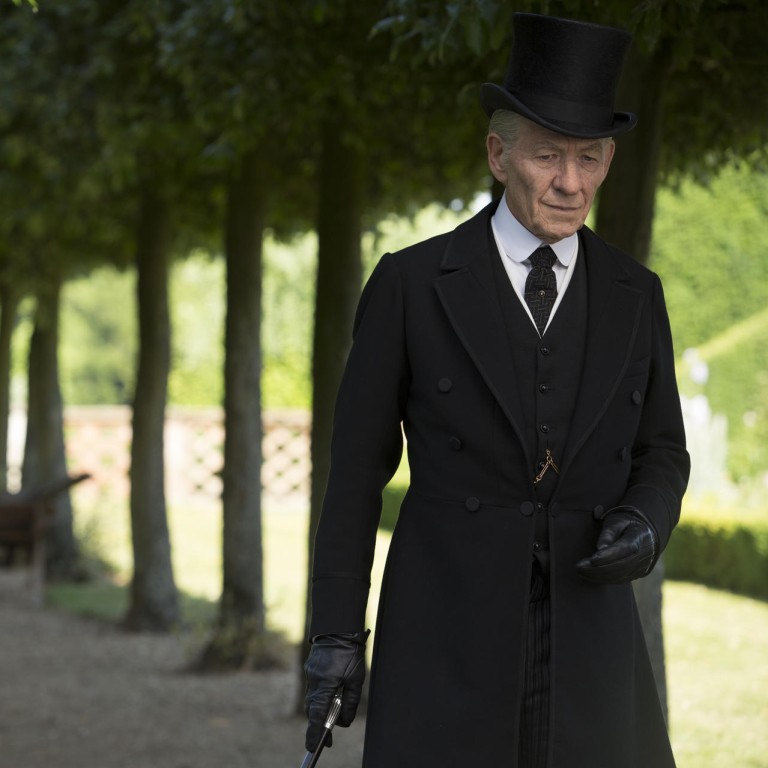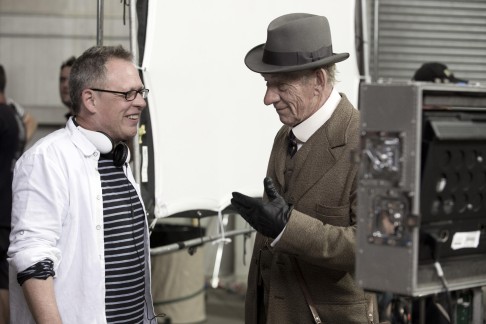
Twilight director Bill Condon on his other life as an indie auteur
As well as big-budget event movies, the Oscar-winning director and screenwriter has made a handful of smaller, more intimate films, including a new take on Sherlock Holmes
If Bill Condon had his way, he'd rather not be remembered for his big-budget event movies. "It's as if all I've ever made was the final movies," he protests over the phone from New York. (2011) and (2012) are two of the director's biggest hits.
"I mean, other than that, most of the movies have been pretty small - except [2006], I guess, but that was a different thing," he adds of his Oscars-winning musical. "They were just projects and scripts and stories that I was drawn to. There was never any design in that."
For the director who first cemented his status as a prominent screenwriter with an Oscar win (for 1998's ) and a nomination (for 2002's musical adaptation ), this difficulty in pinning down his creative tendency is evident if one compares, side by side, the film he's promoting and the one he's making.

When the reaches Condon for this interview, we're primarily meant to be chatting about his independent film . It has an actor in his mid-70s (Ian McKellen) as its lead, and tells a Sherlock story that's more interested in tracing a personal past than in solving a great mystery.
But it's hard to neglect the elephant in Condon's room: he has just returned from a nine-month London shoot for the live-action musical movie , which is based on the 1991 Disney animation and features Emma Watson as Belle and 's Dan Stevens as the Beast. The director hopes to finish the first cut by Christmas.
"I've had a strange couple of years [since] ," says Condon, who turns 60 this week. "It had been very intense developing and shooting these other movies, like [2013] and . I also did a musical on Broadway [ ]. I'm just trying to keep my head clear for a bit."

It helps that he's working with a trusted ally for both and , in which McKellen respectively plays a senile version of the detective and, well, Cogsworth the clock. Condon's rapport with the English actor was established as early as the financing stage of .
"He would go to meetings with people and get them worked up. It was remarkable," says Condon of McKellen, who received plaudits for his portrayal of gay filmmaker James Whale - director of (1931), (1933) and (1935) - and his first best-actor nominations at the Oscars and Golden Globes.
Condon continues: "I still remember the day he had a seven-page scene and we were running out of time. I just told him I wasn't going to call 'cut'. 'When you're finished, do it three or four times and that would be it.' He was such a good sport about that. It was one of the best scenes in the movie."
In , which again sees McKellen play a cultural icon coming to terms with mortality, the legendary sleuth is in his 90s and long retired to Sussex to keep bees. Laura Linney, the co-star of Condon's 2004 movie , also returns to play Holmes' housekeeper.
Based on Mitch Cullin's novel (2005), the gently affectionate movie sees Holmes sieve through lingering memories of his last case from 30 years before.
"What I love about the story is that the mystery he's solving turns out to be the mystery of Sherlock Holmes - who he is and how he's wound up here at the end of his life," Condon says.
Keenly aware that he's summoning Arthur Conan Doyle's fictional detective minus the thrills, the director is realistic about his film's mainstream appeal. "That's why you make a movie like this in a responsible way for a modest budget," he says. "Because you know it doesn't need to, or want to, appeal to everybody. That's why I love going back and forth [between indie and mainstream movies]. Somebody once said: in mainstream movies, it's life as we want it to be; in alternative movies, it's life as it is."
Condon discovered the joy of musicals in New York as a child and grew up to be one of Hollywood's most revered practitioners of the form, so it's amusing to hear him talk pensively about the romanticised vision of life one minute - and then and the next.

"I feel like there are some people who will never forgive [me for doing ]," says the director, who admits he was initially taken by the gothic element in the story. "I started with a great interest in horror. So there were big sequences in those movies that really, really appealed to me.
"And I love that the audiences who love it are so connected to it. All of that, I took very, very seriously. It's an interesting kind of alternative universe. If you get it, you get it; if you don't, my god, people are just appalled by it." He bursts into laughter. "So I get that. I get it."
As he moves from tackling Stephenie Meyer's hugely popular franchise to one of Disney's most beloved classics, Condon could certainly learn from that baptism of fire when he courageously decided to shoot as a fully musical movie.

For his own film, Condon is looking to use the entire original score, plus three new songs by Alan Menken. While he hasn't taken much from the Broadway version ("it really didn't seem to help that much on what we're up to"), he has drawn from Jean Cocteau's 1946 version, "which I love".
"I think in movies, the secret is that you can never stop," says Condon of his musicals. "You can never let a song just settle in; it's got to push the story forward. You have to be somewhere different at the end of a song than when you started."
He continues, "When it works - and it's hard to make them work - I feel like it's such a heightened state you can reach. It's really fascinating because it's a high-wire act."
opens on Oct 22

